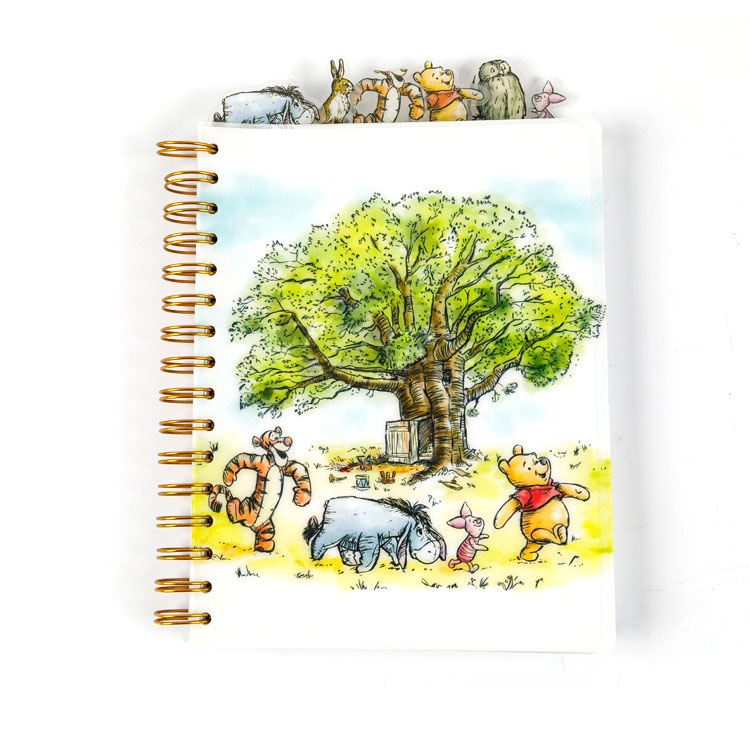The Importance of Notebooks: A Simple Tool for Big Ideas
2025-03-22
In today’s digital age, where smartphones, laptops, and tablets dominate our lives, the humble notebook still holds its ground. Whether you're jotting down ideas, keeping track of appointments, or sketching your thoughts, a notebook remains an essential tool for productivity, creativity, and organization. This blog explores the enduring value of notebooks and why they continue to be a popular choice for individuals across the world.
Why Notebooks Still Matter
In a world filled with digital devices, one might wonder why physical notebooks still hold such importance. The truth is, there’s something incredibly personal and satisfying about putting pen to paper. Notebooks offer an experience that digital devices simply cannot replicate, from the tactile feedback of writing to the sense of permanence that paper provides.
1. Enhanced Memory and Learning
Writing by hand has been shown to enhance memory and learning. Studies suggest that the act of physically writing notes helps individuals retain and comprehend information better than typing. This is especially important for students, professionals, or anyone looking to remember important details. The process of forming letters and words on paper creates deeper cognitive connections in the brain, making handwritten notes more effective for learning.
2. Creativity and Expression
Notebooks offer an unstructured space for creativity. Artists, writers, and thinkers often use them to sketch ideas, brainstorm, or write down the beginnings of new projects. Unlike digital platforms, which are often constrained by apps or software, a notebook allows for free expression. Whether it's doodling in the margins or writing your next novel, a notebook becomes a canvas for your thoughts, without the distractions of notifications or app-switching.
3. Mindfulness and Focus
In an era dominated by multitasking and constant digital distractions, a notebook can provide a space for focus and mindfulness. Writing down your thoughts or to-do lists by hand slows down your mental process, allowing you to be more intentional and focused. This form of analog productivity helps individuals tune out the noise and focus on one task at a time, promoting better organization and reducing stress.
4. Organization and Planning
Notebooks have long been the go-to tool for organizing thoughts and planning projects. Whether you’re keeping track of your daily schedule, setting goals, or making lists, notebooks are versatile enough to handle any type of task. The beauty of a notebook is that it’s completely customizable. You can organize it as a journal, planner, or personal scrapbook, depending on your needs. Many people find that having a physical notebook to record their thoughts makes them more organized and productive.
Types of Notebooks and Their Uses
Not all notebooks are created equal. They come in various shapes, sizes, and styles, each suited to different purposes. Whether you're looking for something simple or specialized, there's a notebook for everyone.
1. Classic Lined Notebook
The classic lined notebook is one of the most popular types. It's ideal for general note-taking, journaling, or academic use. The lines help guide your writing and keep your notes neat and organized. Whether you’re a student in a lecture or someone who likes to record daily thoughts, a classic lined notebook is a versatile tool.
2. Blank Notebook
For those who like to sketch or design, a blank notebook is an excellent option. The absence of lines allows complete freedom to create. Artists use blank notebooks for drawings, illustrations, or even crafting visual concepts for projects. Writers, too, may use a blank notebook for brainstorming and free-writing, where structure and organization are less important than the flow of ideas.
3. Grid or Graph Paper Notebook
Grid notebooks are a favorite among engineers, architects, and designers. The grid structure helps with drawing diagrams, charts, and technical sketches. The uniformity of the grid also makes it easier to create visually balanced layouts, whether you're designing a floor plan, plotting data, or even working on intricate patterns.
4. Bullet Journal
Bullet journals have gained massive popularity as a tool for both personal organization and creative expression. This type of notebook is used to track habits, set goals, create weekly or monthly calendars, and engage in reflection or mindfulness exercises. Bullet journaling provides a flexible, personalized system for staying organized and focused, blending productivity with creativity.
5. Leather-Bound or Hardcover Notebooks
For a more refined, professional look, leather-bound or hardcover notebooks are an excellent choice. These types of notebooks are often used for business meetings, special projects, or as personal keepsakes. The sturdy cover ensures durability, while the luxurious appearance makes them a cherished possession for many. Many people also prefer to keep these types of notebooks as journals for recording important life events or memories.
The Eco-Friendly Aspect of Notebooks
In addition to their personal benefits, notebooks can also be a more sustainable choice compared to digital devices. While smartphones and laptops require energy to function, and often contain materials that are difficult to recycle, a simple notebook is made primarily from paper, which can be biodegradable and recyclable. Some notebooks are even made from recycled paper, which further reduces their environmental impact. For those who are mindful of their ecological footprint, opting for a notebook over a digital device can be a small but meaningful step toward sustainability.
Notebooks as Gifts
Notebooks make for thoughtful gifts, whether for a student, a professional, or a creative individual. They offer a personal touch that reflects care and consideration, making them perfect for birthdays, holidays, or even as a gift for a colleague. A high-quality notebook, paired with a nice pen, is a gift that can inspire creativity and productivity for years to come.
Conclusion
Despite the digitalization of many aspects of our lives, notebooks continue to play a crucial role in education, work, and personal growth. They remain a powerful tool for organizing thoughts, recording memories, and fostering creativity. Whether you're using a simple lined notebook or a beautifully bound leather journal, the process of writing by hand remains a timeless and meaningful activity that connects us to our ideas in a deeply personal way. In a world full of distractions, the notebook offers a simple, effective way to focus, express, and grow.



